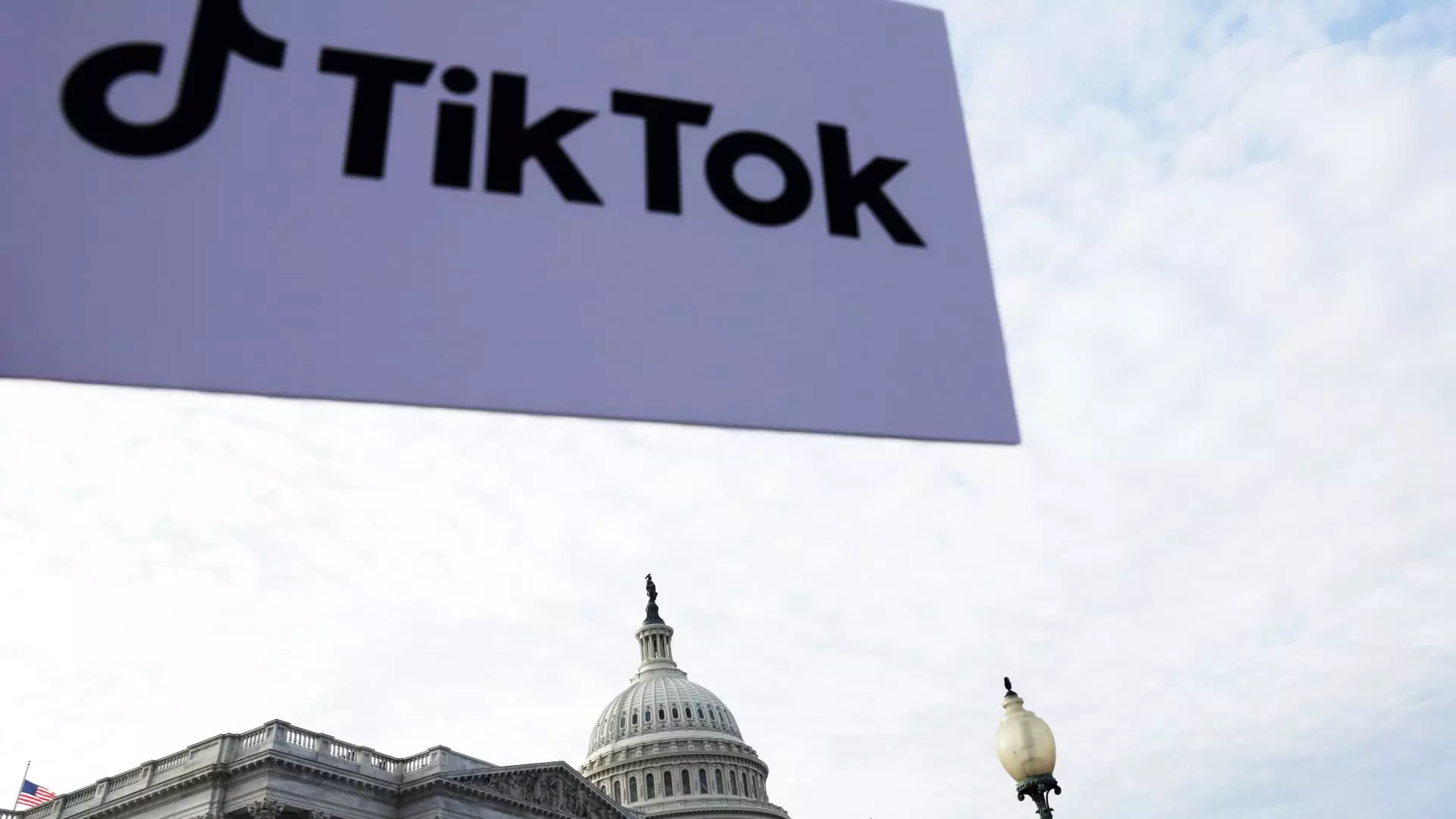The debate surrounding TikTok’s future in the United States is heating up again as members of Congress exert pressure on tech giants Apple and Google. This latest chapter highlights an intricate dance between legislation, corporate responsibility, and international diplomacy, raising critical questions about the balance between national security and economic interests.
Recent letters from Representatives John Moolenaar and Raja Krishnamoorthi to executives at Apple and Alphabet have underscored the legal responsibilities these companies hold as gatekeepers of the app marketplace. The backdrop of this situation is a ruling by the U.S. Court of Appeals, which upheld a law mandating that ByteDance, TikTok’s parent company based in China, divest from the app by January 19. If this divestiture does not occur, both tech firms may be obligated to remove TikTok from their app stores, thereby essentially banning its functionalities in the U.S. market.
This approach aligns with the broader narrative of legislation aimed at mitigating threats perceived to be posed by foreign entities, especially from China. Lawmakers emphasize that their directive is informed by the need to protect American national security interests. By enforcing a divestiture, Congress asserts that they are safeguarding data privacy for American users against potential espionage or manipulation from foreign adversaries.
Faced with this legislative backdrop, TikTok’s management has begun mobilizing its efforts, arguing that the proposed ban is unjust and infringes on First Amendment rights. The app’s considerable user base, numbering around 170 million in the U.S., adds a layer of complexity to this situation. The potential economic fallout is significant; TikTok projects that a month-long ban could lead to over $1.3 billion in losses for U.S. small businesses and content creators who rely on the platform for advertising and engagement.
Complicating matters further is the political context surrounding the issue. With Donald Trump poised to take office again, uncertainty looms regarding whether he will push through the ban on TikTok that he attempted to implement during his previous tenure. His shifting stance, particularly after engagements with potential investors in TikTok and its parent company, suggests that the interest of economic stakeholders might weigh against the security narrative that has been dominant in legal discussions.
Beyond national security, the potential TikTok ban raises questions about the U.S. economy and the relationship between tech firms and foreign investments. For example, the involvement of U.S.-based financier Jeff Yass, who holds significant stakes in both ByteDance and Trump’s Truth Social, illustrates the interconnected nature of modern investments.
This intersection of politics and business raises concerns about transparency and fairness in governance. If foreign investments can influence decisions at the highest levels of government, it casts doubt on the motivations behind legislative measures aimed at national security. Additionally, it presses the question of whether the political system can effectively respond to these challenges without detrimental impacts on innovation, competition, and economic growth in the digital marketplace.
As the U.S. braces for a potential TikTok ban, the situation offers a microcosm of the larger themes currently shaping the global political economy: the delicate balance of national security, the role of technology giants, and the implications for users and businesses alike. How this narrative unfolds over the coming weeks could set significant precedents for the regulation of technology and foreign entities within the U.S. economic landscape.
Without a clear resolution that harmonizes security concerns with the economic realities of the digital age, the outcome may have lasting repercussions for not only TikTok but also for American users and content creators who depend on such platforms for connectivity, creativity, and commerce. The stakes are high, and all parties involved may need to navigate a complex web of legal, economic, and diplomatic challenges in the path forward.


Leave a Reply